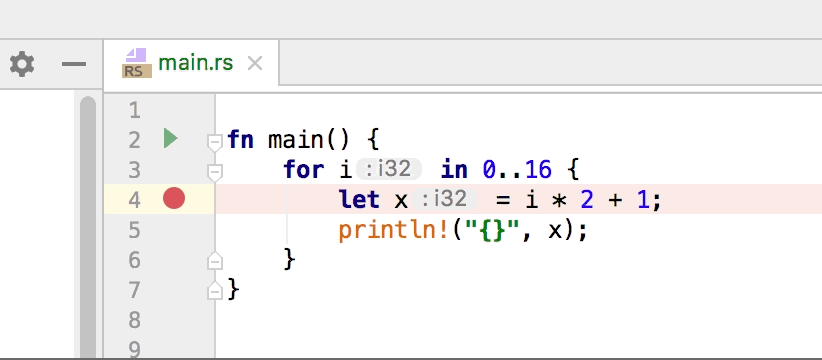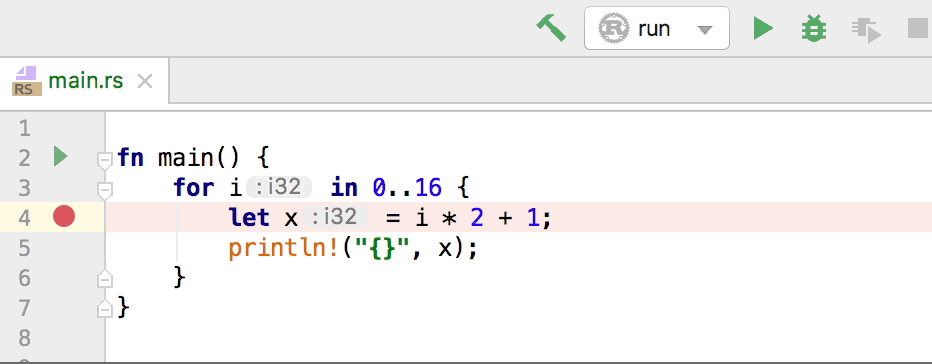Rust plugin for the IntelliJ Platform
| Build Status | |
|---|---|
| Check | |
| Stable | |
| Beta | |
| Nightly |
Installation & Usage
Available installation options and features are described on intellij-rust.github.io. All new features are announced in the changelog.
If you want to jump straight in, open Settings > Plugins > Marketplace in your IDE, search for Rust and install the plugin. To open an existing project, use File | Open and point to the directory containing Cargo.toml. For creating projects, use the Rust template. You can find more details in the Quick Start Guide.
Compatible IDEs
The plugin is compatible with all IntelliJ-based IDEs starting from the version 2020.3, with the following differences in the sets of the available features:
| Open-source and Educational IDEs* | CLion (commercial) | IntelliJ IDEA Ultimate, PyCharm Professional, GoLand (commercial) | WebStorm, PhpStorm, other commercial IDEs | |
|---|---|---|---|---|
| Language support | + | + | + | + |
| Cargo support | + | + | + | + |
| Code coverage | + | + | + | + |
| Debugger | - | + | +** | - |
| Profiler | - | + | - | - |
| Valgrind Memcheck | - | + | - | - |
| Detecting duplicates | - | + | + | + |
* IntelliJ IDEA Community Edition, PyCharm Community Edition, PyCharm Edu and IntelliJ IDEA Edu.
** Requires the Native Debugging Support plugin. LLDB only. PyCharm Professional and GoLand support debugging starting from 2021.1
TOML
If you are looking for the TOML plugin, see intellij-toml directory.
Contributing
You're encouraged to contribute to the plugin if you've found any issues or missing functionality that you would want to see. Check out CONTRIBUTING.md to learn how to set up the project and ARCHITECTURE.md to understand the high-level structure of the codebase. If you are not sure where to start, consider the issues tagged with help wanted.



 and run debugging via debug action
and run debugging via debug action











